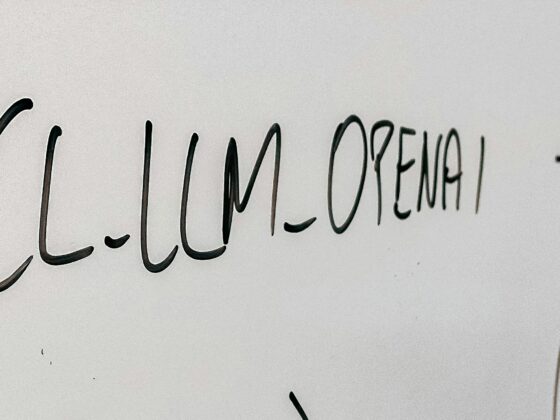
In the dynamic world of hospitality, the oft heard cry of “new technology” often rings loud and clear. Companies eagerly invest, chasing the promise of innovation, efficiency, and a competitive edge. Yet, all too often, these ambitious tech programs falter, leading to squandered investments, internal chaos, and frustrated stakeholders. From three decades navigating the intricate intersection of operations and technology, TRAVHOTECH observed a pervasive, yet frequently overlooked, culprit: a profound lack of hospitality tech strategy discipline.
It’s not always about outdated tech, or even a lack of budget. More frequently, the issue stems from a critical misstep: asking the wrong people – those lacking the necessary knowledge and experience – to dictate the technological path. When decisions are made by individuals with a narrow focus or insufficient understanding of the broader industry dynamics, even the most promising programs can be undermined. This often results in organizational damage, a crippling lack of clear direction, and significant negative impacts on both customers and staff.
The Peril of Undisciplined Tech Adoption: Avoiding Hospitality Tech Investment Pitfalls
Undisciplined tech strategy often manifests in several critical ways, contributing to significant hospitality tech investment pitfalls:
- Organizational Damage and Lack of Clear Direction: Without a disciplined, well-informed strategy, technology initiatives become reactive and fragmented. This leads to conflicting priorities, redundant systems, and an overall loss of cohesion. Teams become disoriented, unable to align their efforts with a unified purpose, ultimately hindering the organization’s ability to operate effectively.
- Customer and Staff Impacts: The ripple effect extends directly to the front lines. Inconsistent or poorly integrated technology creates friction for both guests and employees. For guests, it translates to a disjointed experience, frustrating touchpoints that erode loyalty. For staff, it means cumbersome workflows, double-handling, and a constant struggle against systems that hinder, rather than help, their ability to deliver genuine hospitality. This directly contradicts the goal of creating environments that enhance life or work experiences.
- Squandered Opportunity and Wasted Investments: Without a disciplined approach, capital investments in technology can quickly turn into sunk costs. Funds are poured into solutions that don’t fit the unique needs of the business, are poorly implemented, or fail to deliver tangible competitive advantage. The true cost isn’t just the money spent, but the lost opportunity to leverage technology for meaningful growth and differentiation. This underscores the challenge of wasted hotel technology spending.
Discipline: The Foundation of a Successful Hospitality Technology Strategy
So, what does a disciplined approach to tech strategy look like, ensuring an effective hotel technology strategy?
- Alignment with Organizational Raison d’être: Technology strategy alignment in hospitality must be inextricably linked to the fundamental reason for the organization’s existence – its vision, mission, and guiding principles. It’s about ensuring every tech investment serves the overarching business outcome, not individual whims or isolated departmental needs, ultimately improving hotel business tech integration.
- Expert-Led Decision Making: Decisions about technology should primarily be driven by those with deep knowledge and experience in both the industry and the technology itself. This means moving beyond superficial assessments and engaging individuals who can understand and build cause-effect models across a vast range of business scenarios and problems. It’s about leveraging experience as a form of intuition, capable of challenging data even data if it hinders true innovation. This is where expert hotel technology consulting becomes invaluable.
- Context is King, Not Copycatting: A critical aspect of discipline is recognizing that every business circumstance and environmental contributing factor is unique. Just because a tech solution was appropriate or successful elsewhere does not automatically mean it will fit the next place. A disciplined approach involves rigorous evaluation against specific operational realities, customer needs, and strategic objectives.
- A Comprehensive, Not Narrow, Focus: Technology strategy cannot be a siloed activity. It requires a holistic understanding of how different platforms and capabilities integrate to create a seamless ecosystem. This calls for leaders who evangelize and introduce new-to-market products with a clear understanding of their broader impact and who prioritize consolidation and simplification over disparate environments, reflecting a comprehensive hospitality tech focus and holistic hotel technology planning.
- Commitment to Accountability and Follow-Through: True discipline demands unwavering commitment, accountability, and responsibility from all stakeholders. Without this adherence to commitments and follow-through, progress is impossible, and even the best strategies will crumble.
In conclusion, successful tech strategy in hospitality isn’t merely about acquiring the latest software or hardware. It’s about the unseen anchor of discipline – a commitment to informed, strategic decision-making rooted in deep industry understanding and unwavering accountability. By prioritizing this discipline, organizations can move beyond squandered investments and fragmented efforts, unlocking technology’s true potential to drive competitive advantage and deliver genuinely exceptional experiences for both guests and staff.








